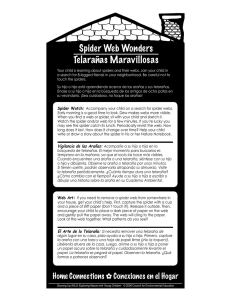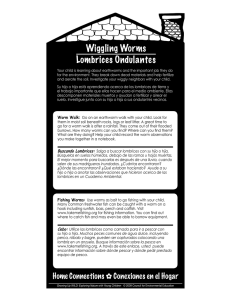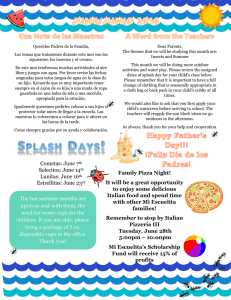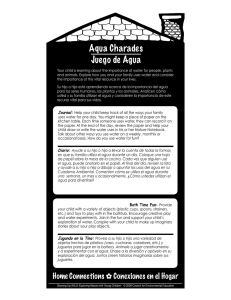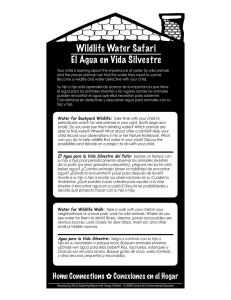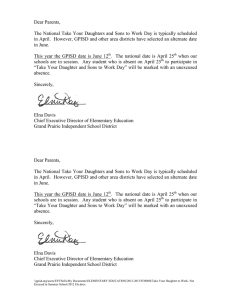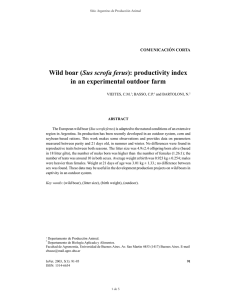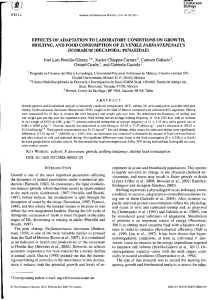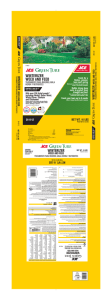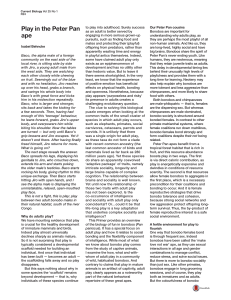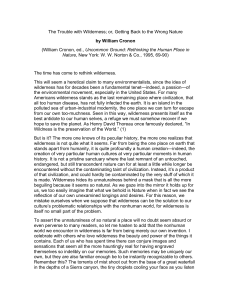What`s Wild? ¿Qué es Silvestre?
Anuncio
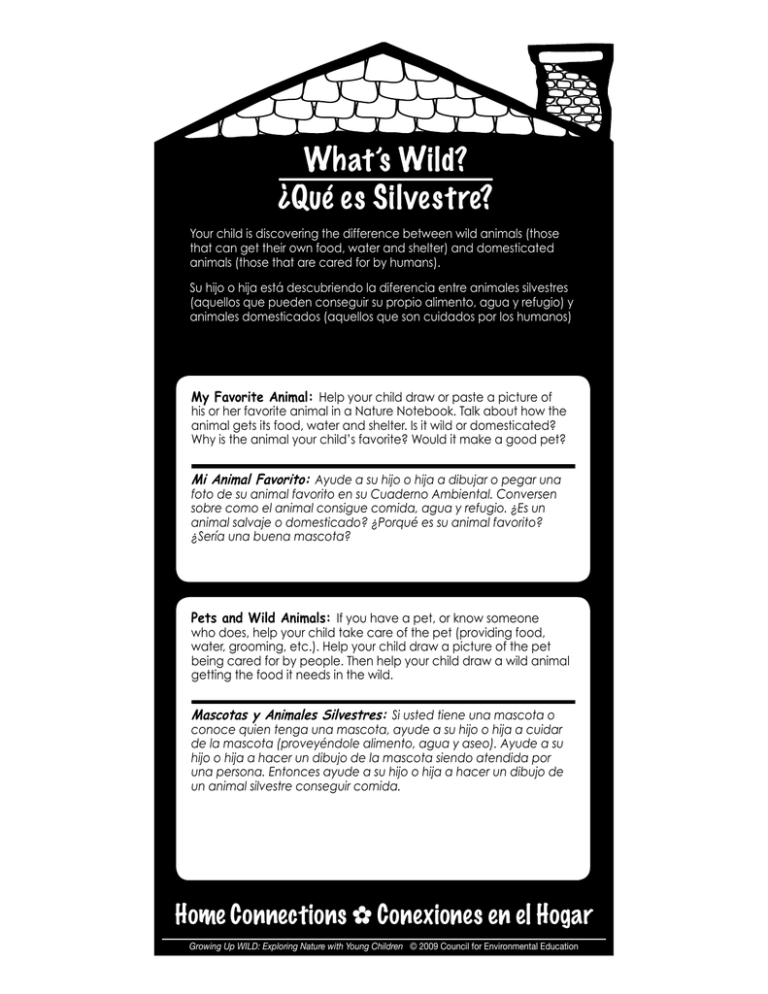
What’s Wild? Journal: Help your child find two leaves outside. Discuss the similarities ¿Qué es Silvestre? and differences between them using the sense of sight, touch, smell and hearing (do not taste, unless you are positive the leaf is edible). Why do Your child is discovering the difference between wild animals (those the two leaves look different? Encourage your child to draw a picture can getintheir water and shelter) ofthat the leaves his orown herfood, journal. Help your child and writedomesticated (or otherwise animals (those that are cared for by humans). indicate) special features of the leaves. Record where you found the leaves. Su hijo o hija está descubriendo la diferencia entre animales silvestres (aquellos que pueden conseguir su propio alimento, agua y refugio) y Binocular Practice using binoculars (real, homemade, or both, animalesSafari: domesticados (aquellos que son cuidados por los humanos) if possible) with your child. Observe animals at home or in a local park. Discuss what they look like and what they are doing. To use binoculars, first spot an animal or object with your eyes. Without taking your eyes off the object, lift the binoculars to your eyes to peer through. Were you able to keep your eyes on the object? My Favorite Animal: Help your child draw or paste a picture of his or her favorite animal in a Nature Notebook. Talk about how the animal gets its food, water and shelter. Is it wild or domesticated? Why is the animal your child’s favorite? Would it make a good pet? Mi Animal Favorito: Ayude a su hijo o hija a dibujar o pegar una foto de su animal favorito en su Cuaderno Ambiental. Conversen sobre como el animal consigue comida, agua y refugio. ¿Es un animal salvaje o domesticado? ¿Porqué es su animal favorito? ¿Sería una buena mascota? Pets and Wild Animals: If you have a pet, or know someone who does, help your child take care of the pet (providing food, water, grooming, etc.). Help your child draw a picture of the pet being cared for by people. Then help your child draw a wild animal getting the food it needs in the wild. Mascotas y Animales Silvestres: Si usted tiene una mascota o conoce quien tenga una mascota, ayude a su hijo o hija a cuidar de la mascota (proveyéndole alimento, agua y aseo). Ayude a su hijo o hija a hacer un dibujo de la mascota siendo atendida por una persona. Entonces ayude a su hijo o hija a hacer un dibujo de un animal silvestre conseguir comida. Home Connections _ Conexiones en el Hogar Growing Up WILD: Exploring Nature with Young Children © 2009 Council for Environmental Education
